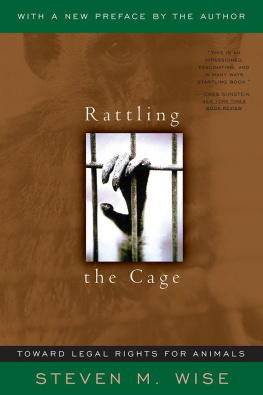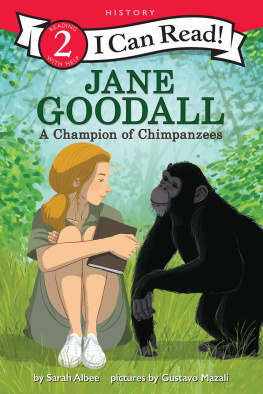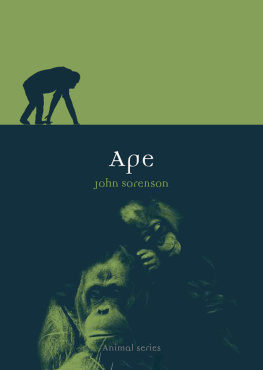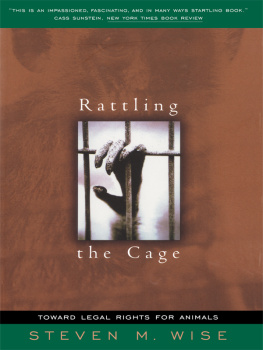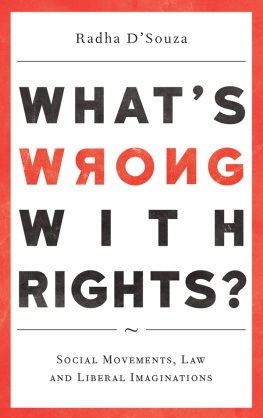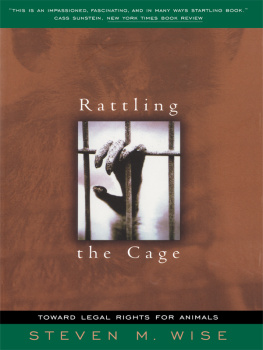Praise for Rattling the Cage
Steven Wise has written a path-breaking book that makes it impossible to continue thinking of animals as mere property. He has shown the way forward, out of the cage in which the law has placed animals. Every lawyer, every judge, and every legislator should read this book.
Peter Singer, author of Animal Liberation
In good lawyerly fashion, Wise offers a wide range of arguments on behalf of animal rights... an impassioned, fascinating, and in many ways startling book... [Wise] gives us compelling reasons to be skeptical of any simple dichotomy between human beings and other animals, and he demonstrates that the law ought to do much more than it now does to prevent animal suffering and abuse.
Cass Sunstein, New York Times Book Review
An important addition to the growing library of animal law resources that serves to expand traditional notions of justice and equity... Even if one disagrees with Mr. Wise, he raises important issues that will hopefully make every reader look at our current legal system a little differently and at the creatures around us more compassionately.
New York Law Journal
Steven Wise has turned a passion for animals into a legal battlefield.
Boston Globe
An extraordinary book, beautifully written, and carefully reasoned. It is every law school teachers hope that a former student will write a book like this oneoriginal, cogently argued, and compassionate. Steven Wises lifetime work of protecting and pursuing animal rights informs every page of this compelling book, just as his keen analytical mind puts the fundamental issues to us in a way we cannot ignore.
Daniel Coquillette, former Dean of Boston College Law School
This is one of those rare books that are deeply troubling in the best sense of the word, intellectually and ethically. It puts on trial a part of our human self-image that has made us less noble than we wish to be.
E. O. Wilson, Harvard University
While most attorneys in this movement lobby for anti-cruelty statutes or go to court on behalf of outraged pet owners, Wise stands apart in the belief that he can reshape the legal concepts of person and property through common law.
Associated Press
The issue as to what our responsibility is to the great apes, and to the chimpanzees and bonobos in particular, is a captive of historical perspectives of centuries past and is in dire need of being redefined in terms of modern science, values, and the law... Steven Wise is thoroughly prepared, educated, and competent to define a rational and moral and ethical legal relationship between humans and the great apes.
E. Sue Savage-Rumbaugh and Duane M. Rumbaugh, Georgia State University
When animals will be able to sue human beings for battery or even wrongful imprisonment... Wise will be there to represent them.
American Bar Association Journal
A marvelous book, so thoroughly researched and so totally convincing. It is the most compelling argument of its kind to support what many of us already believe, that animals cannot be treated as things but should be recognized as sentient beings to which we must apply the moral principles we so blindly reserve for our own species. Its hard to think of a better book to guide our treatment of animals in the new century.
Elizabeth Marshall Thomas, author of The Hidden Life of Dogs
Praise for Though the Heavens May Fall
[Wise] has an eye for evocative detail and an interest in the trappings and procedures of an 18th-century courtroom that do as much to engage the reader as the drama of the trials themselves.
Marilynne Robinson, New York Times Book Review (cover review)
A thorough and convincing account of the case that led to the official banning of slavery in England.
New York Review of Books
Praise for Drawing the Line
[Wise is] a leading advocate for non-human animal rights... An important book to read because it challenges all of us to rethink where and why we draw the line.
Nature
A groundbreaking book. A page-turner.
Library Journal
RATTLING the CAGE
RATTLING
the
CAGE
Toward Legal Rights for Animals
WITH A NEW PREFACE BY THE AUTHOR
STEVEN M. WISE
FOREWORD BY JANE GOODALL
Copyright 2000 by Steven M. Wise
Preface copyright 2014 by Steven M. Wise
All rights reserved. No part of this publication may be reproduced, stored in a retrieval system, or transmitted, in any form or by any means, electronic, mechanical, photocopying, recording, or otherwise, without the prior written permission of the publisher. Printed in the United States of America. For information, address Da Capo Press, 44 Farnsworth Street, 3rd Floor, Boston, MA 02210.
Cataloging-in-Publication data for this book is available from the Library of Congress. First Da Capo Press edition 2000
Published as a Merloyd Lawrence Book by Da Capo Press
A Member of the Perseus Books Group
www.dacapopress.com
eBOOK ISBN: ISBN 978-0-306-82400-5
Text design by Jeff Williams
Da Capo Press books are available at special discounts for bulk purchases in the U.S. by corporations, institutions, and other organizations. For more information, please contact the Special Markets Department at the Perseus Books Group, 2300 Chestnut Street, Suite 200, Philadelphia, PA 19103, or call (800) 810-4145, ext. 5000, or e-mail special.markets@perseusbooks.com. special.markets@perseusbooks.com.
For Jerom
a person, not a thing
CONTENTS
FOREWORD
by Jane Goodall
Rattling the Cage is an important book, an exciting book. It will be welcomed by everyone who is concerned about the well-being of animals, by those who are, as I am, kept awake by grim mental images of the abuse inflicted on other animals by humans. I was honoured when Steve Wise asked me to write this introduction, for I believe that Rattling the Cage, thanks to all the long years of research that went into the writing, will make an impact, and leave its mark on the process of law. I see it as a major stepping-stone along a road that is gradually leading to a new legal relationship between humans and other sentient, sapient life forms.
Steve Wise is a law school professor. He is also an accomplished animal-rights legal scholar and one of the worlds most prominent animal-rights lawyers. Steve and his wife, Debi, defend a variety of animal species across the United States and advise those who defend animals around the world. In writing Rattling the Cage, Steve has used his experience in both science and law to great advantage, and he has a trial lawyers knack for telling a good story. He explains, for example, why it matters so much today whether an ox who gored a passerby on a road in the Middle East four thousand years ago was Babylonian or Hebrew. And why, four hundred years ago, an early animal advocate stood up for barleyeating rats in a French courtroom. And, most surprisingly, why John Quincy Adams would thunder on the floor of the U.S. House of Representatives that he would present petitions to the Congress from horses or dogs if they asked him to.
In many ways this book can be seen as the animals Magna Carta, Declaration of Independence, and Universal Declaration of Rights all in one. And it is timely. Twentyeven tenyears ago, Steve would have been out on a limb, ridiculed by his colleagues and largely ignored by the lay public. But attitudes toward animals have changed. Very few scientists today believe that nonhuman animals are simply mindless machines, collections of stimuli and responses. Of course, it would be convenient to believe that this was true, that there was a basic and fundamental difference between ourselves and the rest of the animal kingdom. Then we could do unpleasant things to them without any feelings of guilt. But this is scarcely an option today, when there have been so many descriptions of incredibly complex social behavior and so many examples of intelligent behavior from so many careful field studies on a whole variety of animal species. Our thirty-nine years with wild chimpanzees at Gombe, for example, has taught us much about these relatives of ours, each with his or her own unique personality. They share so many of our behaviors. They form close affectionate bonds with each other that may persist through a life of sixty or more years; they feel joy and sorrow and despair, mental as well as physical suffering; they show many of the intellectual skills that until recently we believed unique to ourselves; they look into mirrors and see themselves as individuals they have consciousness of self. Admittedly, chimpanzees are capable, as are we, of acts of brutality. But they also demonstrate empathy, compassion, altruism, and love. Should not beings of this sort have the same kind of legal rights as those we grant to human infants or the mentally disabled, who also cannot speak for themselves?

